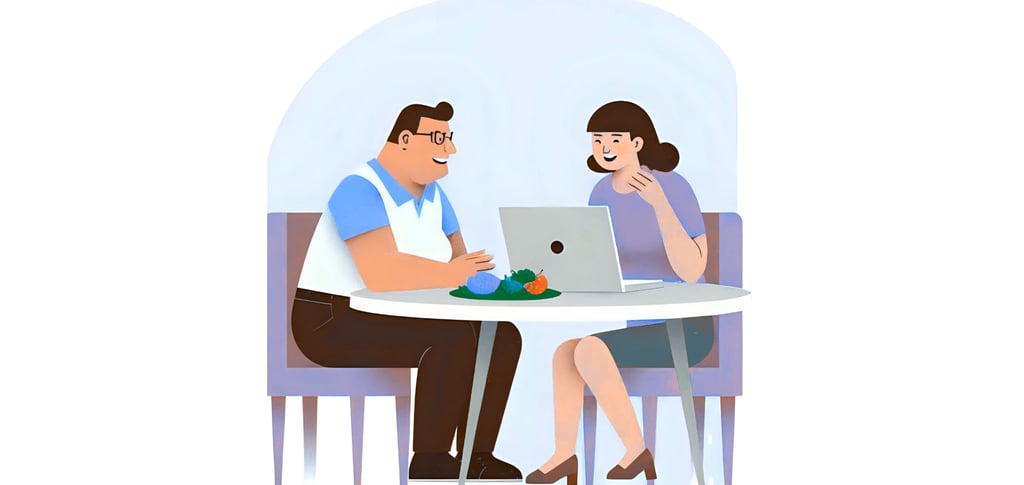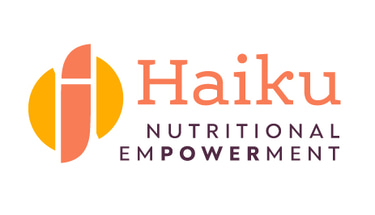What Is a Diabetes Educator and How Can They Help You?
Spoiler: They're basically your diabetes co-pilot, coach, and hype squad rolled into one.
Kelly Robers
7/15/20252 min read


You’ve just been diagnosed with diabetes. Cue the overwhelm: carb confusion, blood sugar charts that look like stock market graphs, and everyone suddenly becoming an expert in what you “should” eat.
Enter the Certified Diabetes Care and Education Specialist (CDCES) — aka your new secret weapon, your diabetes decoder ring, your go-to person when you’re wondering, “Can I eat this… and also not spiral into burnout?”
So, what exactly is a diabetes educator?
A diabetes educator is a healthcare professional (often a registered dietitian, nurse, pharmacist, or other licensed clinician) who has undergone specialized training and certification to help individuals manage their diabetes effectively. Think of us as translators—we take the science, the guidelines, the ever-evolving food labels, and turn them into real-life strategies that fit your life.
According to the Association of Diabetes Care and Education Specialists (ADCES), the goal is to help you gain the knowledge, skills, and confidence to manage your diabetes every day. Because let’s face it, you’re the one steering this ship 99% of the time.
We help with:
Meal planning that doesn't feel like punishment
Blood sugar troubleshooting (yes, there’s a reason it spikes after sushi night)
Decoding your lab results
Navigating meds, devices, and that one app that keeps giving you “helpful” tips
Tackling diabetes distress, burnout, and decision fatigue
We're here for the real stuff. Like why your blood sugar goes rogue after a walk in the Arizona heat or what to do when you forgot to pre-bolus for that breakfast burrito. No judgment, just guidance.
But do I really need one?
Short answer: Yes.
Slightly longer answer: If you’ve ever felt lost in the world of A1Cs, CGMs, carbs, and “why is my blood sugar doing that?” — then you deserve the kind of support a CDCES provides.
The American Diabetes Association (ADA) even recommends seeing a diabetes educator at four key times:
At diagnosis
Annually for a tune-up
When life changes (new job, baby, different insurance—yep, it all matters)
When your numbers or stress levels are out of whack
And here’s an important stat: People who work with a diabetes educator lower their A1C by an average of 1–2 percentage points. That’s a pretty big deal when you consider that every percentage point drop reduces your risk of long-term complications. That's like taking an A1C of 9 and bringing it down to a 7.
Real Talk: What’s it actually like?
At Haiku Nutritional Empowerment, it’s not a lecture. It’s a conversation. We know the science, but we also know that you’re a whole person with a real life—one that includes birthdays, busy schedules, and the occasional emotional support donut.
Whether you’re living with type 1, type 2, gestational, or LADA, our goal is to make diabetes more manageable, less miserable, and maybe even a little empowering.
You’ll learn through micro-lessons (because you’re busy), have access to group support (because you're not alone), and get personalized feedback (because Google doesn't know you).
Takeaway Time: A diabetes educator is your guide through the maze of diabetes. You don’t have to do it alone, and you don’t have to have it all figured out. That’s why we’re here.
👣 Ready to get started? Visit www.haikunutrition.net to schedule your complimentary consultation and take the next step toward confidence, clarity, and community.
Support
Comprehensive diabetes education and resources.
Contact
Connect
krobers@haikunutrition.net
(602)456-0146
© 2025. All rights reserved.
